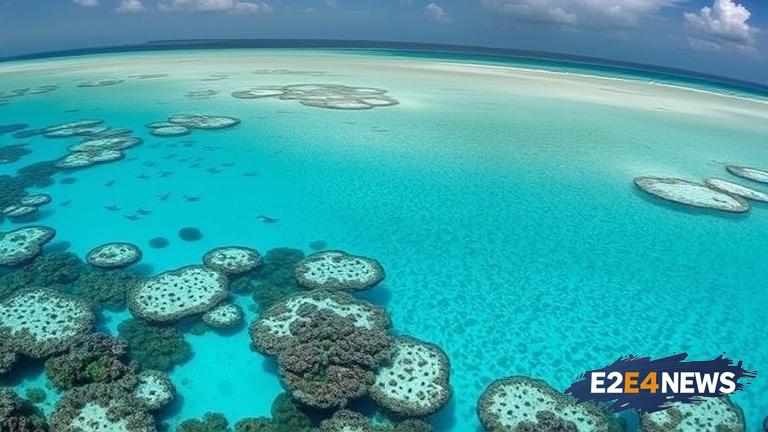The Great Barrier Reef, one of the most biologically diverse ecosystems on the planet, has been affected by the most extensive bleaching event in its history. This catastrophic event has been caused by rising sea temperatures, which have stressed the coral to the point of expelling its algal symbionts, turning white and often leading to its death. The bleaching event has been exacerbated by climate change, which has led to an increase in sea temperatures and ocean acidification. The consequences of this event are far-reaching, with many species that depend on the reef for food and shelter being affected. The reef’s complex ecosystem is being disrupted, leading to a decline in biodiversity and potentially even the collapse of the ecosystem. The Australian government has been criticized for its response to the crisis, with many arguing that more needs to be done to address the root causes of the problem. The reef’s tourism industry, which is worth billions of dollars, is also being impacted, with many businesses and jobs at risk. The bleaching event has been described as a ‘wake-up call’ for the need to take action on climate change, with many calling for a reduction in greenhouse gas emissions and a transition to renewable energy. The reef’s coral cover has been declining over the past few decades, with the 2016 bleaching event being the worst on record. The reef’s health is not only important for the ecosystem, but also for the economy and human well-being. The Australian government has established a number of initiatives to protect the reef, including the Reef 2050 Plan, which aims to improve the reef’s health and resilience. However, many argue that more needs to be done to address the scale and complexity of the problem. The reef’s future is uncertain, with some predicting that it could be completely destroyed within the next few decades. The international community is being called upon to take action to protect the reef, with many arguing that it is a global responsibility. The reef’s decline is not only an environmental issue, but also a social and economic one, with many communities that depend on the reef for their livelihoods being affected. The Australian government has been accused of prioritizing the interests of the fossil fuel industry over the health of the reef, with many calling for a transition to renewable energy. The reef’s bleaching event has been described as a ‘canary in the coal mine’ for the impacts of climate change on ecosystems around the world. The need for urgent action to protect the reef and address the root causes of the problem is clear, with many arguing that the window for action is rapidly closing. The reef’s future is in the balance, and it is up to governments, businesses, and individuals to take action to protect it. The consequences of inaction will be severe, with the loss of the reef’s ecosystem and biodiversity having far-reaching impacts on the environment, economy, and human well-being. The reef’s decline is a symptom of a larger problem, with climate change being the major driver of the bleaching event. The need for a global response to the crisis is clear, with many arguing that it is a collective responsibility to protect the reef and address the root causes of the problem. The reef’s health is not only important for the ecosystem, but also for human well-being, with many communities that depend on the reef for their livelihoods being affected. The Australian government has been accused of failing to take adequate action to protect the reef, with many calling for a more comprehensive and coordinated approach to addressing the crisis.
